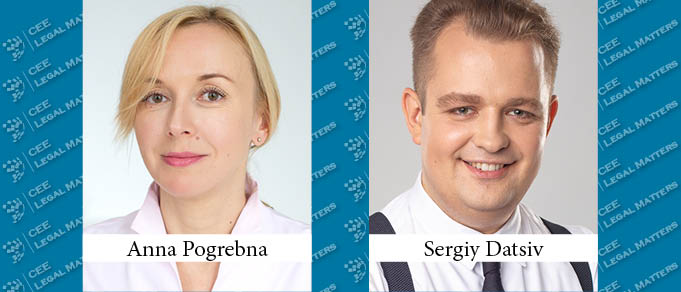On April 28, 2020, Ukraine’s “On Prevention and Counteraction the Legalization (Laundering) of Proceeds from Crime, Financing Terrorism and Financing the Proliferation of Weapons of Mass Destruction” Law (the “AML Law”), which replicates the recommendations of the Financial Action Task Force and implements provisions of 4th Anti-Money Laundering Directive ((EU) 2015/849), came into force.
Below we summarize the most significant amendments contained in the AML Law.
Transactions Subject to Financial Monitoring
The AML Law cuts the number of indicators of transactions subject to financial monitoring from 17 to 4: transactions involving a party located in the jurisdiction which do not comply with the anti-money laundering recommendations for international institutions; transactions involving politically exposed persons (PEPs); transfers of funds abroad; and cash transactions. The financial threshold for transactions is increased from UAH 150,000 to UAH 400,000 (from approximately EUR 4500 to approximately EUR 12,000).
The obliged entities must apply a risk-oriented approach to financial monitoring, allowing them to take simplified due diligence measures for certain clients and operations. We expect that such changes will make financial monitoring more business-oriented and will allow a significant number of transactions to be processed quickly and without extra verifications.
Detection of UBOs
The AML Law mandates that obliged entities must duly verify information regarding clients’ ultimate beneficiary owners – UBOs – and take all possible steps to collect complete and accurate information about clients’ UBOs. For this purpose, obliged entities should rely not only on information regarding a UBO provided by the client but should use all available sources to collect the necessary information. The most important point is that the obliged entity must inform Ukraine’s AML authority about any discrepancies it detects between information about a UBO it finds in the Companies Registry and the information it receives following the check.
The new AML Law also requires Ukrainian companies to report any changes of information about UBOs and requires that Ukrainian companies confirm information about the UBO and relevant ownership structure each year within 14 calendar days from the anniversary of the company’s registration date by submitting the group’s ownership structure, an apostilled extract from a foreign register for a non-resident shareholder, and a certified copy of the UBO’s passport or ID.
Once PEP – Forever PEP
According to the AML Law, PEP status does not expire in three years (as it did previously), and the relevant person is deemed to be PEP for his or her entire lifetime.
Asset Freezing
The New AML Law stipulates the procedure for freezing assets related to financing terrorism and weapons of mass destruction. The obliged entity must freeze the assets immediately after a client is put on the list of persons related to terrorist activity or which are under international sanctions. Once the assets have been frozen payment operations are suspended, although receiving of funds remains possible.
A client could be included on the list by a decision of a Ukrainian court adopted pursuant to a motion by the Security Service of Ukraine; a decision of a foreign state; or a resolution of the UN Security Council. Given the capacity of Ukraine’s Security Service to file a motion to put an entity on the list, both Ukrainian and foreign entities should check their contemplated transactions carefully to ensure there is no involvement of persons or entities related to terrorist organizations.
Strengthening Sanctions for Violation of AML Rules
The AML Law provides for significantly increased fines for violation of AML rules. For example, failure to identify financial operations subject to financial monitoring will cost the obliged entity UAH 340,000 (approximately EUR 10,200), instead of the UAH 13,600 (approximately EUR 407) called for under the previous law. At the same time, the AML Law prohibits more than one sanction for each breach and provides a new influence measure called a “settlement agreement” – a way to mitigate the consequences of AML rule violations for diligent obliged entities.
Even though the AML Law is a big step forward in increasing the transparency of Ukraine’s financial sector and the adoption of the best global approaches to preventing the financing of terrorism and weapons of mass destruction, some of the provisions are uncertain and their performance is hard to predict.
By Anna Pogrebna, Partner, and Sergiy Datsiv, Associate, CMS Reich-Rohrwig Hainz
This Article was originally published in Issue 7.11 of the CEE Legal Matters Magazine. If you would like to receive a hard copy of the magazine, you can subscribe here.


